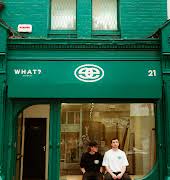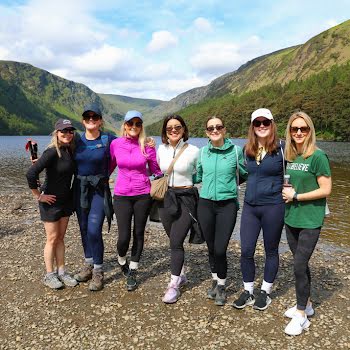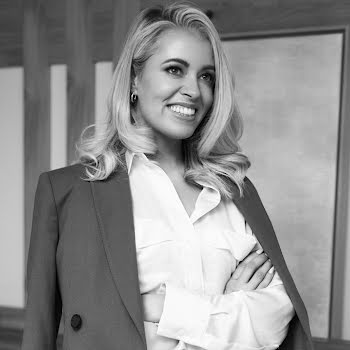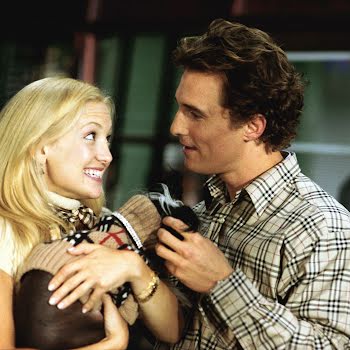
By Niamh Ennis
08th Feb 2021
08th Feb 2021
Read time: 5 minutes
Surely, it implies that I am essentially a good person trying to do good things for others? Not quite, explains change coach Niamh Ennis.
What’s wrong with being a people pleaser, why do people use this phrase in such a negative context? Surely, it implies that you are essentially a good person trying to do good things for others? Wrong! People pleasers aren’t simply motivated by a desire to do things in order to make everyone around them happy.
Those who suffer (and I used this word advisedly) from the “disease to please” are those who say yes when they really want to say no. Their insatiable need to be liked, to belong, forces them to use acts of kindness and people-pleasing ways in a misguided attempt to ingratiate themselves further.
I know this because for a very large part of my life I was that yes woman. I did everything for everyone even when it left me miserable. I avoided saying no for fear of being not needed.
I believed that the more I could do for others, the more they would need me and the more they needed me the less likely it was that I would be abandoned.
What started in my teenager years, through my twenties and into my thirties was peak people-pleasing behaviour. If I am to be fully honest here, I’d have to confess it bordered on neediness, a trait that makes me shiver at the memory of my younger self. I said yes to everything that was asked of me. I went along with what everyone around me wanted while convincing myself it was the right thing to do. People-pleasing is essentially a mantra of “everybody else comes first”.
Why doing it all is never enough
I remember when my desire to please started to fail me. I had tried to be all things to all people, and in the end, nobody, especially me, was satisfied. I knew how to be strong and to always be available for other people. In my friendships, I was always the rescuer, the problem solver. I was the strong one and the funny one. I used humour and especially sarcasm as a way to deflect. I pushed myself to be the funniest, the smartest and the most popular.
I built my self-esteem around that yet the more I pushed towards it, the more it escaped me. I was desperate to prove that I had something to give. The pressure of that was at times suffocating but the energy of desperation and scarcity unsurprisingly had the opposite effect.
Concentrating on other people's problems was simply a way to avoid my own. I didn't have to deal with the potential pain of being rejected or the fear of being alone if I made myself indispensable to others.
These days, I regularly remind myself that my worth is far more than what I do for others but back then I didn’t recognise the evidence.
Changing habits
Almost ten years ago, I’d begun working with a coach and was stopped in my tracks by the simplest of questions.
“What is it that you want? What really matters to you?”
I hadn’t a clue what it was that I wanted. I realised that I had spent so long being informed by what others thought or expected of me, that I no longer knew what it was that I wanted.
I recognised what I had always known deep down but had thus far ignored; even if I did every single thing that others expected of me, if I worked hard and did absolutely everything in my power to make others happy, it would really never be enough.
What I craved most was what no one could give me – unconditional love and acceptance. I went in search of this elusive validation from others instead of spending that time working on and developing it in myself. In doing this I was saying to the world that their opinion of me was more important than my opinion about myself.
To begin my recovery, I had to get really clear and reconnect with who I was and accept that “no” was a complete sentence. In starting to say no I began to appreciate that it meant I was saying yes to myself. I also had to make others aware of what these new boundaries were going to look like. For the first time, I had to resist the notion that I was being selfish because I was now prioritising myself.
This all required time and trust that my friends would still be my friends if I couldn't be there to help them out. I slowly learned that people would still respect me when I stood my ground or expressed an opinion in contrast to their own.
Part of me will probably always want to be seen as the problem solver, the good girl, the one everyone gets along with. But the difference between who I was then and the woman I am now is a strong sense of who I am and everything that I choose to be and do flows from that place. I now know what it is that I want and exactly what matters to me and that has honestly been my greatest revelation.
Are you a people pleaser?
So if you relate to my words and you are already self-diagnosing as you read this, start addressing this now by taking the following these steps:
- Ask yourself the all-important questions “what is it that I want, what really matters to me?”.
- Get clarity on the detail surrounding what you desire for yourself. Don’t expect the answer to come rushing in straight away, sit with it and see what lands, remember you’ve pushed it away for a long time, it needs to find its way back to you.
- Think about just how you want to show up in the world. Who is it you want to become? What does she look like, how does she feel, what does she say, what does she do and how does she carry herself?
- Then map out just what are the simple best next steps you need to take that will help you get closer to where you want. Make them realistic and achievable.
Remember how you treat yourself is how you are inviting the world to treat you too. So start now by setting the best possible example and put yourself first.
Niamh Ennis is Ireland’s leading Change & Transformation Coach and Founder of The RESET for Change 3 Month 1:1 Private Coaching Programme. She works with women who simply feel stuck, who are questioning what it’s all for and she gives them the chance to see just what’s possible for them as well as the tools they need to do just that. To discover how Niamh can help you click here.























